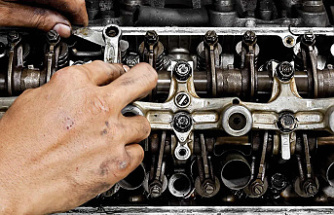New Jersey voters approved measures in 2014 that give judges more discretion when setting bail and save the state and counties tens of millions of dollars in jail costs, Gov. Chris Christie said in a radio interview earlier this month.
Christie was responding to a comment from a listener who said bail reforms that took effect in January are not working and allow more violent offenders to be released without any oversight.
Christie argued that bail reforms target nonviolent defendants, many of whom are given electronic monitoring bracelets as a condition of their release. He also said he suspected the critic was either a bail agent or was repeating the "crap they put up there" on Facebook.
"The bail bonds community has made a fortune over the years predominately off of the poor in New Jersey, and we now are stopping them from doing that, and they're pissed," he said in a New Jersey 101.5 interview. "Too bad. You shouldn't be making money off the poor that way."
Christie also pointed out that one measure voters approved allows judges to detain defendants who are deemed a flight risk or potential danger without bail, something they couldn't' do before.
New Jersey is one of dozens of states and jurisdictions that have made changes to their bail systems in recent years to be more fair. Cuyahoga County and the state of Ohio are also considering ways to make their systems more equitable and cost effective.
At the same time, cleveland.com has spent the past 10 months examining Cuyahoga County bail systems and ways they could be more equitable and less costly to taxpayers as part of a series, Justice For All. The series also highlights other bail reform efforts across the country.
Read about some of them below:
Georgia class action bail lawsuit roils on: The U.S. Court of Appeals for the 11th Circuit heard oral arguments Thursday as part of a class action suit that alleges Calhoun, Georgia's bail practices violate the 14th Amendment's due process and equal protection clauses.
Attorneys with two civil rights advocacy firms filed the suit last year on behalf of Maurice Walker, a 54-year-old mentally disabled man who spent six days in jail, because he could not afford his $160 bail on a charge of public intoxication.
A Georgia federal judge agreed with Walker's attorneys and ordered the city of Calhoun to consider a defendant's ability to pay before setting bail. Calhoun changed some of its polices as a result, but appealed the ruling.
The lawsuit is one of several filed across the country in recent years, arguing that bail discriminates against people who cannot afford to pay for their release. Dozens of court jurisdictions and several states are voluntarily changing their systems to be more fair to poor defendants.
This new wave of bail reform has bail agents -- which profit off indigent suspects who don't have the money for bail -- jockeying to secure the future of their industry.
Two bail agents, Duane "Dog" Chapman and his wife, Beth Chapman, of A&E's "Dog the Bounty Hunter" are leading the charge. They both attended Thursday's hearing on the Calhoun case and had this to say outside the courtroom:
"You can't allow everybody in jail to be let out for free," said Beth Chapman, president of the Professional Bail Agents of the United States, according to the Atlanta Journal-Constitution. "There'd be no repercussions, no deterrence, nobody would be out looking for them."
But the judges seemed to agree with Walker's attorneys, who argued that setting bail without considering a defendant's ability to pay is troublesome, The Journal-Constitution's Bill Rankin wrote. One judge said many of the city's arguments were "unpersuasive."
Massachusetts senator introduces bail reform bill: Sen. Ken Donnelly, D-Arlington, proposed legislation this week that would require the state to develop a system that determines pretrial release based on risk of skipping court or committing crimes, rather than ability to pay, masslive.com reports.
"We need to make sure people who deserve to be in [jail] are in people who don't deserve are not in," Donnelly said at a Thursday news conference, according to masslive.com. "It shouldn't be how much money you have."
The bill is among several that Massachusetts senators introduced Thursday aimed at enhancing fairness in the criminal justice system. Legislation introduced by Sen Michael Barrett of Lexington aims to limit the number of people who are jailed for failing to pay court fees and fines.
Boston protesters call for bail reform: As Massachusetts legislators and Gov. Charlie Baker introduced plans to curb the state's incarceration rate Thursday, protesters in Boston urged them to adopt policies that would reduce economic and racial disparities in the criminal justice system.
Rabbi Margie Klein Ronkin, a demonstrator from the Massachusetts Communities Action Network, told the Boston Herald the government needs to look at bail reform "because almost half the people in our jail system have not been convicted of a crime," she said. "We are not addressing that yet."
Arizona bail reform takes effect April 3: In less than two months, Arizona courts must stop jailing people simply because they are too poor to afford bail, the Phoenix New Times reports.
The reforms came via a December mandate from Arizona Supreme Court Chief Justice Scott Bales. Mirroring recommendations from an Arizona task force on fair justice, Bales ordered judges to "impose the least onerous" conditions on a person. It also requires courts to adopt a system for assessing a defendant's risk of committing crimes or skipping court.
"The court must not impose a monetary condition that results in unnecessary pretrial incarceration solely because the person is unable to pay the bond," Bales' order states, according to the New Times.
Our editors found this article on this site using Google and regenerated it for our readers.












